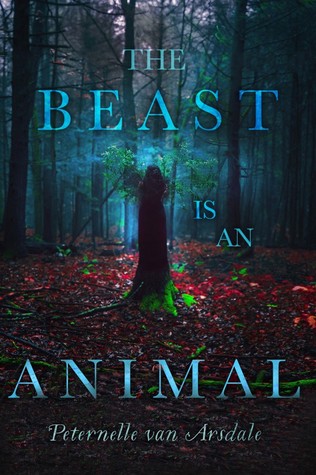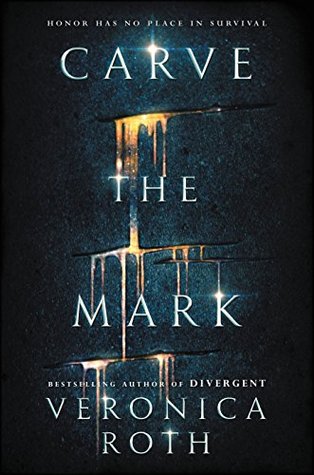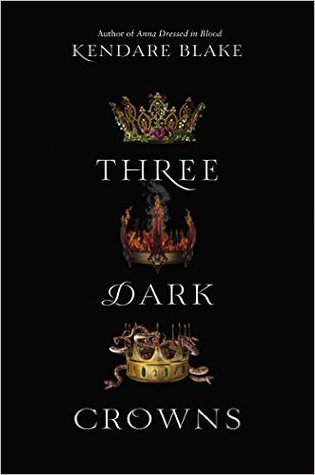Rachel dreamed about unicorns. Despite the absurdity of Violet’s wish, it had rooted in Rachel’s subconscious while she slept, and she awoke the next morning with a stress headache that felt like dozens of hooves bucking against her skull. Massaging the base of her neck, she closed her eyes against the dull grayish-blue light that slithered in between the slats of the metal window blinds and reminded her- self this particular wish was not one she needed to worry about.
She hadn’t always known she could make wishes come true. At first, they seemed like happy coincidences. Like when she was five and her favorite stuffed animal, a rabbit called Bit, appeared in her bed with both ears still attached—despite having been thrown in the garbage the week before, his fluffy brains spilling out of the hole in his head. When her mom asked her how she’d gotten him back, and fixed, she just smiled and said, “Magic!”
As she grew, she discovered that it wasn’t just her wishes that came true. She didn’t have to be in the presence of someone making a wish for it to appear, just in the same town, as she discovered one year at sleepaway camp. And most of the time, she had no idea who a wish belonged to. She just knew that when a wish was strong enough, it would pop into existence, written on a scrap of paper like the ones that came out of fortune cookies, and make its way to her. She’d find them floating in the air, and tumbling out of the cereal box when she poured her breakfast, and underneath her pillow at night.
No one else seemed to notice them appear, but once she’d touched them, igniting their power, anyone could see them clutched in her hand or stuffed into the pocket of her jeans. And anyone could read them if they managed to snatch them away from her. Anyone could discover what she could do if she wasn’t careful, even if they were un- likely to believe it.
So she waited until no one was looking to pick up the wishes. Then she hid them all in a wooden box on her dresser, the papers stacked a few inches high in neat rows, and smiled to herself when she over- heard kids at school excitedly whispering about how they’d gotten exactly what they wanted.
When her mom found the stash when Rachel was eight and asked why she was collecting these bits of paper with wishes written across them, Rachel confessed they weren’t hers but that she had made them come true. Her mom nodded, like she believed her, and joked about all of the things she’d wish for. Then she told Rachel to be sure and add her wishes to the top of her pile so they would come true first.
But that was when her parents thought she just had a very active imagination, before anyone said there was something wrong with Rachel’s brain.
Rolling out of bed, the headache reined in to a dull ache, she thought as she always did after a wish appeared about wishing things could go back to the way they used to be. Before Michael—the little brother she wished away one rainy, ordinary afternoon because he was irritating her. Before her parents watched her warily and spoke to her in soft, concerned voices, reminding her over and over that she never had a little brother. Before her dad walked out on them and her mom started to believe in Michael too, and, unable to live with the possibility she’d had a son and lost him without even remembering he existed, downed a handful of Rachel’s antipsychotics and chased it with a five-dollar bottle of Cabernet a month after Rachel’s eigh- teenth birthday.
But no amount of wishing could change the past. In the eight years since her mom’s death, she’d tried countless times to set everything right.
And she’d failed.
She paused in the hallway on her way downstairs. She’d inherited her childhood home after her mom died and hadn’t changed a thing. Discolored patches of wallpaper created a mosaic on the wall as if half a dozen frames had been removed from the collage of family photos and the wallpaper refused to blend back into one monotonous shade of green.
The wall had once held pictures of Michael next to the rest of her family. She could see his face as clearly as if he were standing in front of her. The curly brown hair and easy smile he’d inherited from their dad. The three-quarter-inch scar through his right eyebrow from when he’d fallen out of bed at age three and cut his head open on the nightstand.
But everyone else insisted Michael had never been real. They said he was just a delusion her mind had created. The first symptom of her psychotic break. That was the line the doctors gave her parents when she was ten to convince them to sign the papers and have her hospi- talized for a month in the psychiatric ward.
Pinching her eyes shut, she counted to three. With each number, she inhaled long and deep before releasing it. He’s gone. And there’s nothing I can do to bring him back. She touched one of the discolored spots on the wall as if she could will a photograph to appear. Breath- ing in deep, she imagined what Michael would look like now. Would his hair still be scruffy and tease the collar of his shirts? Would his baby face have slimmed down so his jaw and cheekbones are sharp and angular like our father’s? Would he still smile at me in the way that said we were about to do something silly?
But try as she might, the face remained stubbornly childlike. Something in her brain refused to let him age past four—the age he was when she wished him away.
When she was younger, Rachel told her parents and the doctors she no longer believed Michael had been real—it was less painful than meeting their faces, lined with worry and disappointment. But her memories of him were still very much alive. Especially here, in the house where she’d ended his existence.
She kept waiting for them to disappear like the doctors had prom- ised, but some small part of her refused to let him go.
In the kitchen, she started a pot of coffee and set to work on the dishes that were piled in both sides of the sink. Violet’s voice happily shout- ing “Ray!” broke her concentration. Startled, Rachel dropped a plate into the sink from her soapy hands, but thankfully it didn’t break. Her phone’s screen lit up on the windowsill when Violet’s voice—the ringtone she’d set for Mary Beth—called out her name again. She bumped the faucet handle with her wrist and dried her hands on the towel hanging from the oven door.
“Did you do this?” Mary Beth asked when Rachel picked up. “Do what?”
“A pony. On my front porch. With a sugar cone strapped on to its head with a piece of elastic.” The words tumbled out in the thick Tennessee twang that always showed up when she was really agitated. “She said it’s what she wished for and you made it come true.”
How the hell could Violet’s wish come true? Unicorns do not exist. There’s no way I did that. Rachel tapped her nails against the ceramic mug in her hand. “Just wait. There has to be an explanation that doesn’t involve me.”
“Vi said she wished for a horse with a horn on its head and that’s basically what I’ve got,” Mary Beth said. “Are you sure you didn’t do this? Not even accidentally?”
“You know I don’t do that anymore.” Rachel ignored the voice in her head telling her she still could do it even if she didn’t want to. That she was solely responsible for the pony appearing at Mary Beth’s house. That more wishes could start appearing again, and who knows what else she might accidentally cause? What she might do to Mary Beth or Geoff or their girls if she wasn’t careful.
The pounding in her head roared back full force at the thought. She’d been so determined in the past few years to keep the wishes at bay. And with one careless action, she’d put everyone she loved at risk. “I know you don’t. I just thought that if you had you might know.





































